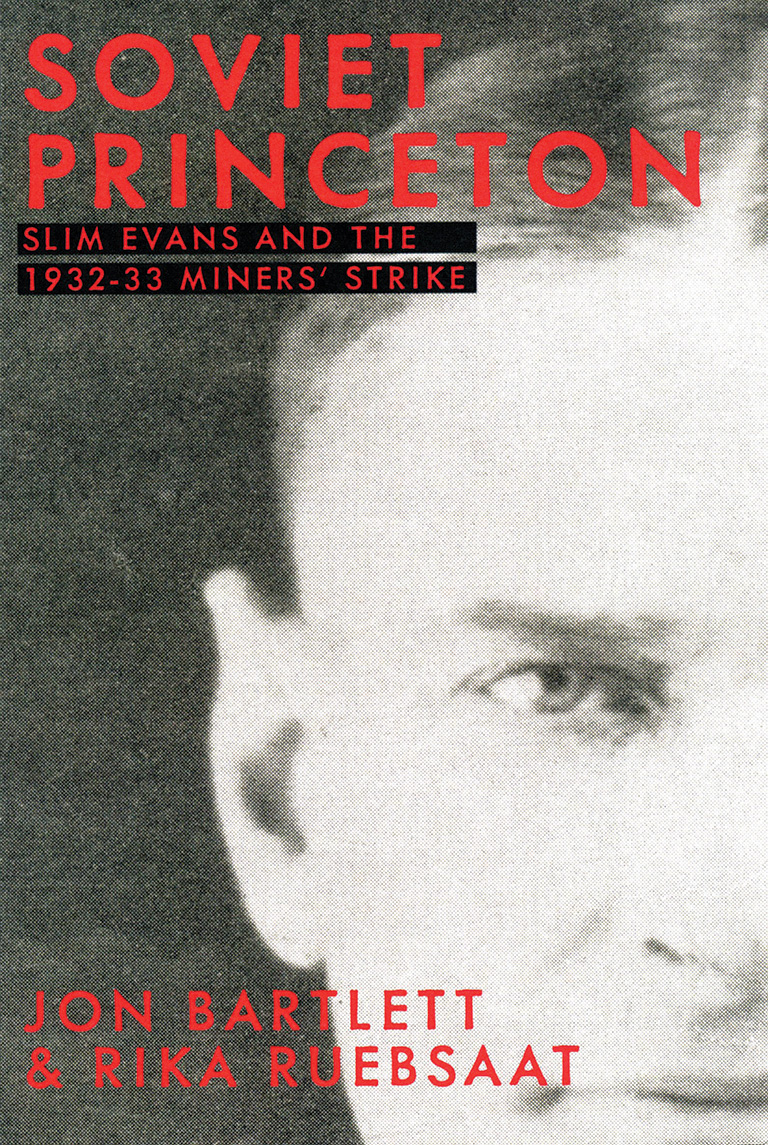Soviet Princeton

Soviet Princeton: Slim Evans and the 1932–33 Miners’ Strike
by Jon Bartlett and Rika Ruebsaat
New Star Books
134 pages, $19
In Soviet Princeton, traditional-song performers Jon Bartlett and Rika Ruebsaat tackle the history of a small town located in southern British Columbia. When the Great Depression hit Princeton in the 1930s, miners suffered greatly. Hundreds in the region were laid off, and workers at the Tulameen mine lost ten per cent of their pay.
Many miners saw no choice but to seek help from the Workers’ Unity League — which they received in the form of charismatic labour activist Arthur Herbert “Slim” Evans, a major character in Soviet Princeton.
Tulameen miners unionized and went on strike, and soon the town was divided. The ensuing tensions sparked a series of extreme events, including eleven policemen on horseback charging into a picket line; the beating of a union supporter; the kidnapping of Slim Evans; and the burning of crosses on a hill overlooking the town by the Ku Klux Klan.
Soviet Princeton focuses on public documents rather than oral history — a decision made by the authors to avoid dislodging harmful memories in the community — and offers a fascinating glimpse into the town’s public life. Newspaper articles from the Princeton Star and The Unemployed Worker, along with excerpts from pamphlets, posters, and songs, reflect the perspectives of various social groups and individuals. For instance, readers won’t soon forget the virulent fear of communism that was perhaps best embodied by Star editor Dave Taylor: “Your fellow citizens are asking you … whether you want prosperity or ruin; whether you want Canada or Russia?”
The rhetoric, attitudes, and motivations at play in the small town are set within the broader context of Canadian politics and labour movements, and the authors employ a compelling combination of conventional and scholarly storytelling methods. It will surely appeal to a broad range of readers.
Themes associated with this article
Advertisement




